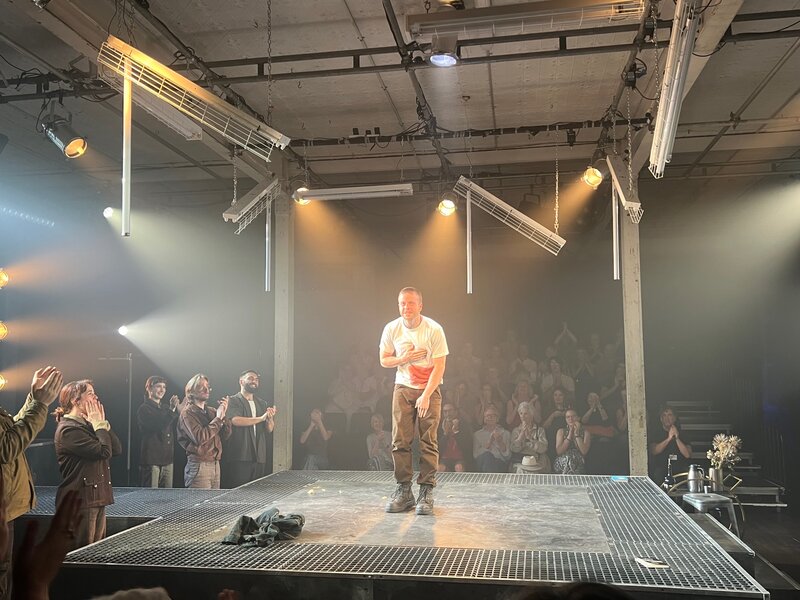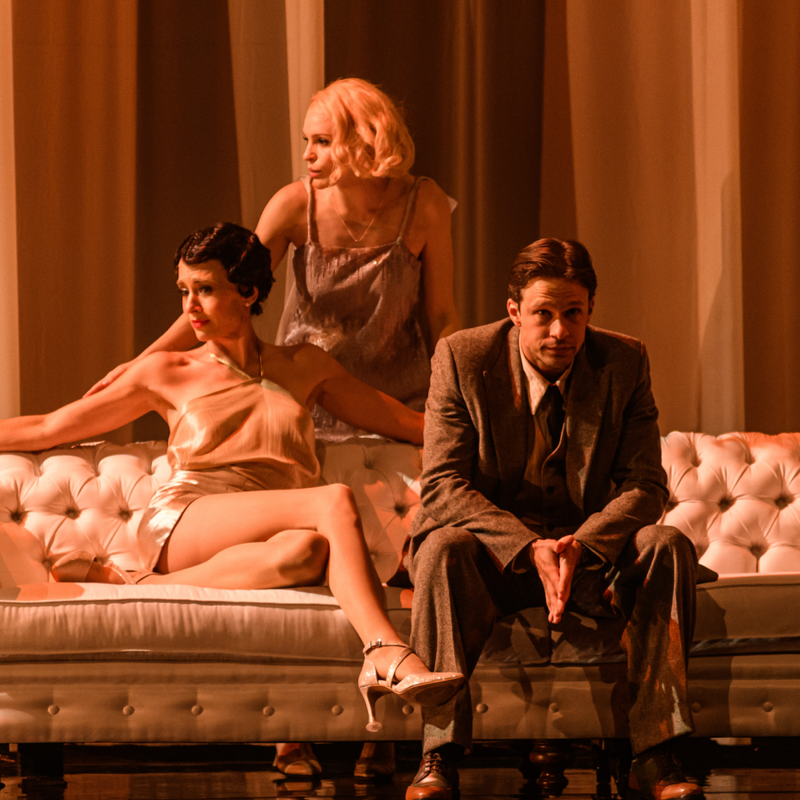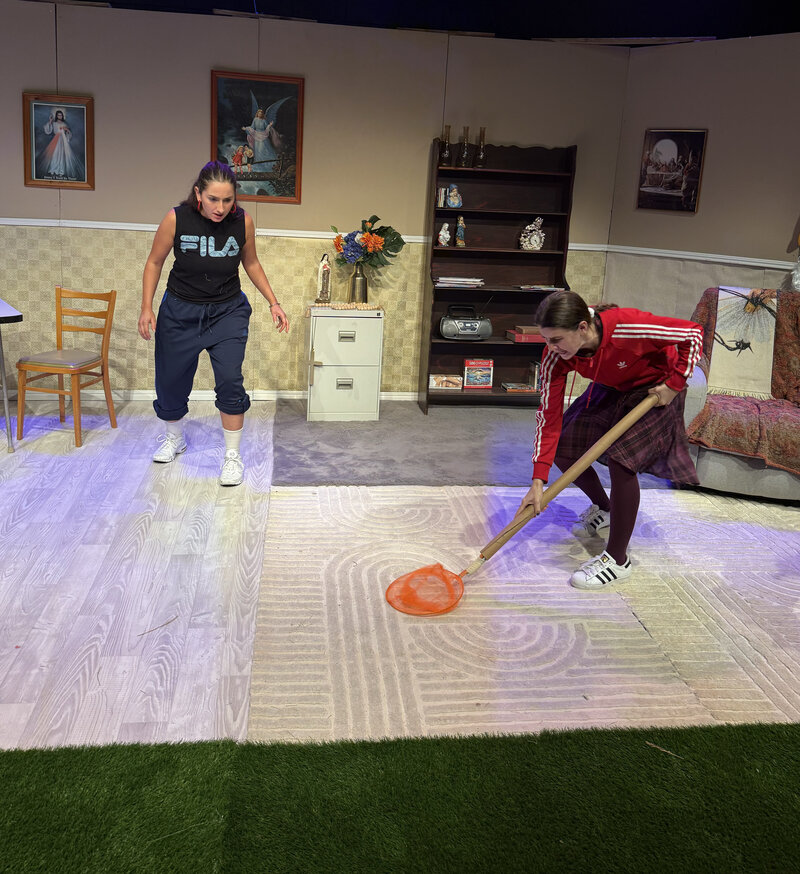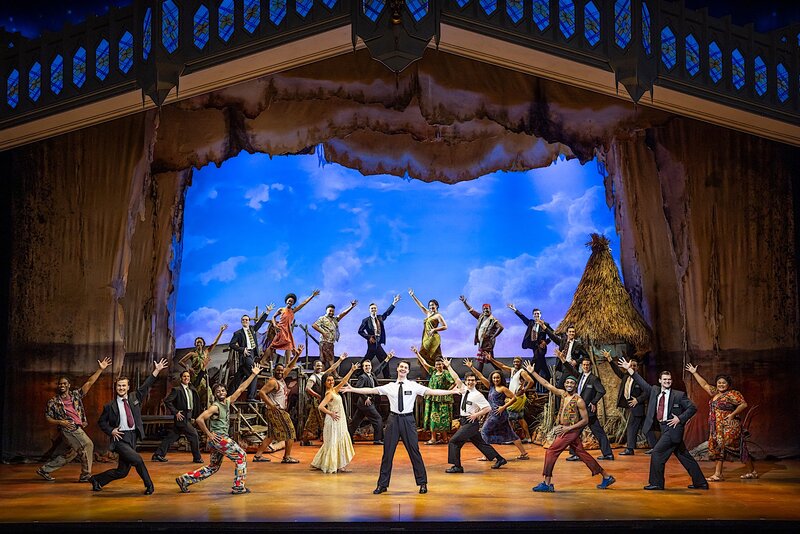Mark Haddon’s best-selling award-winning novel, The Curious Incident of the Dog in the Night-Time has been adapted to the stage by fellow playwright an Olivier winner himself. The novel which has become a staple of the school curriculum. Haddon himself thought the novel unadaptable, but Stephens’ version has been quite successful, remaining reasonably faithful to the novel. It captures the essence of the book’s intense and introspective central character and his journey, its rich themes and complex structure.
 The Curious Incident of the Dog in the Night-Time was first performed by London’s National Theatre in August 2012. It has since garnered seven Olivier Awards, including Best New Play. When it played on Broadway it also won five Tony awards. This exclusive Australian production, based on that original National Theatre production, is an ambitious co-production between the Melbourne Theatre Company and Arts Centre Melbourne.
The Curious Incident of the Dog in the Night-Time was first performed by London’s National Theatre in August 2012. It has since garnered seven Olivier Awards, including Best New Play. When it played on Broadway it also won five Tony awards. This exclusive Australian production, based on that original National Theatre production, is an ambitious co-production between the Melbourne Theatre Company and Arts Centre Melbourne.
Christopher Boone (played by Joshua Jenkins) is an autistic 15-year-old. Since the death of his mother, Christopher lives with his father Ed (David Michaels). Ed struggles with the demands of raising Christopher alone. Christopher doesn’t like to be touched, he lacks empathy for others, and loud or sudden noises upset him. And while he is gifted at maths, he often struggles to understand the world around him.
Then Wellington, a neighbourhood dog, is stabbed with a pitchfork one night. Christopher obsesses over the brutal murder of Christopher’s efforts to discover who murdered the dog take him out of his comfort zone as he confronts his neighbours. His quest also exposes a shocking secret about his family that lead him on a journey of self-discovery. Eventually the question of who killed the dog becomes irrelevant as the play explores
Christopher’s growth into maturity as he grows up and becomes more independent and self-reliant and secures his future.
Director Marianne Elliott (Angels In America) is a veteran of the National Theatre in London and she was largely responsible for the original staging of the production. She has reproduced the original staging here, with its clever use of lighting, videos, movement and illustrations. Her direction is poignant and compassionate, and she brings a sense of clarity to the narrative. The set itself is quite minimal. Outline drawings on the stage and backdrop depict the neighbours’ houses. The device evokes Lars von Trier’s obscure film Dogville, in which the houses were depicted through chalk drawings and minimal furniture.
Elliott and her lighting designer Paule Constable and sound designer Ian Dickinson cleverly use strobe lighting and loud noises to create a sensory overload that effectively conveys Christopher’s sense of disorientation and confusion as he undertakes an 80km train journey from his home in Swindon to Willesden on the other side of London. It is an immersive experience as we also feel that sense of disorientation.
Christopher is an intelligent and intense and very full-on character, and Jenkins’ performance is energetic and captures the mannerisms of an autistic person credibly with his sense of single minded focus – he builds a miniature railway set on stage – and his tantrums and introspective nature. He brings nuance and detail to his performance that captivates from the outset. It is a demanding performance as he is on stage the entire duration of the two-hour plus drama. Jenkins is familiar with the role though as he played the character on a National Theatre touring production.
 A veteran of the British theatre scene, Emma Beattie plays Christopher’s sympathetic mother Judy. Julie Hale plays Siobhan, Christopher’s teacher. She also reads portions of his diary aloud at the opening to give us a sense of his inner voice and interpret his often-monosyllabic responses. Hers is also the voice that often clams Christopher during his epic journey. Apart from the four lead characters, an ensemble of six actors play a combined total of 29 characters and voices.They move as a well-oiled machine. They even play the crowds that surround Christopher on his journey; and get to shift around the scenery.
A veteran of the British theatre scene, Emma Beattie plays Christopher’s sympathetic mother Judy. Julie Hale plays Siobhan, Christopher’s teacher. She also reads portions of his diary aloud at the opening to give us a sense of his inner voice and interpret his often-monosyllabic responses. Hers is also the voice that often clams Christopher during his epic journey. Apart from the four lead characters, an ensemble of six actors play a combined total of 29 characters and voices.They move as a well-oiled machine. They even play the crowds that surround Christopher on his journey; and get to shift around the scenery.
The Curious Incident of the Dog in the Night-Time is an inventive, challenging and compelling piece of theatre. It’s playing at Art Centre Melbourne till 25 February 2018.
Greg King
Other reviews you might enjoy:
- The Father (MTC) – theatre review
- Drive (Theatre Works) – theatre review
- Heisenberg (MTC) – theatre review

David Edwards is the former editor of The Blurb and a contributor on film and television





